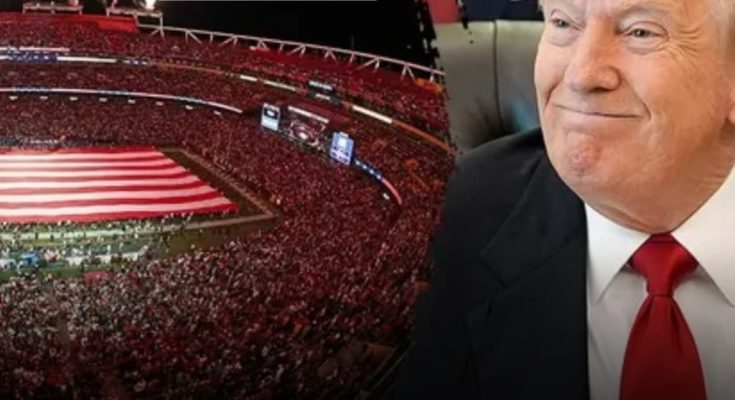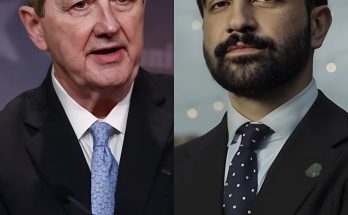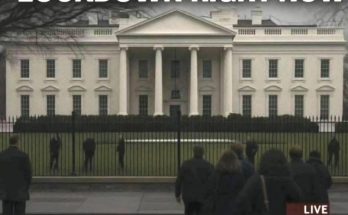On a crisp autumn evening in Washington, D.C., the lights were bright, the stands were full, and the hum of anticipation hung in the air. But beyond the roar of the crowd, a different kind of drama was playing out — one that blends sports, power and presidential ambition. At the centre of the story is the Donald Trump-era ambition to see the city’s next great sporting venue carry his name. According to multiple reports, the President has made clear he wants the forthcoming stadium for the Washington Commanders, slated to cost $3.7 billion, to bear his name.
This isn’t a speculative rumour. The story has been picked up by major outlets. For example, ESPN reported that a senior White House source told the team’s ownership that “It’s what the president wants, and it will probably happen.” At the same time, the White House press office softened the stance but didn’t reject it — instead calling the idea “beautiful,” adding that President Trump “made the rebuilding of the new stadium possible.”
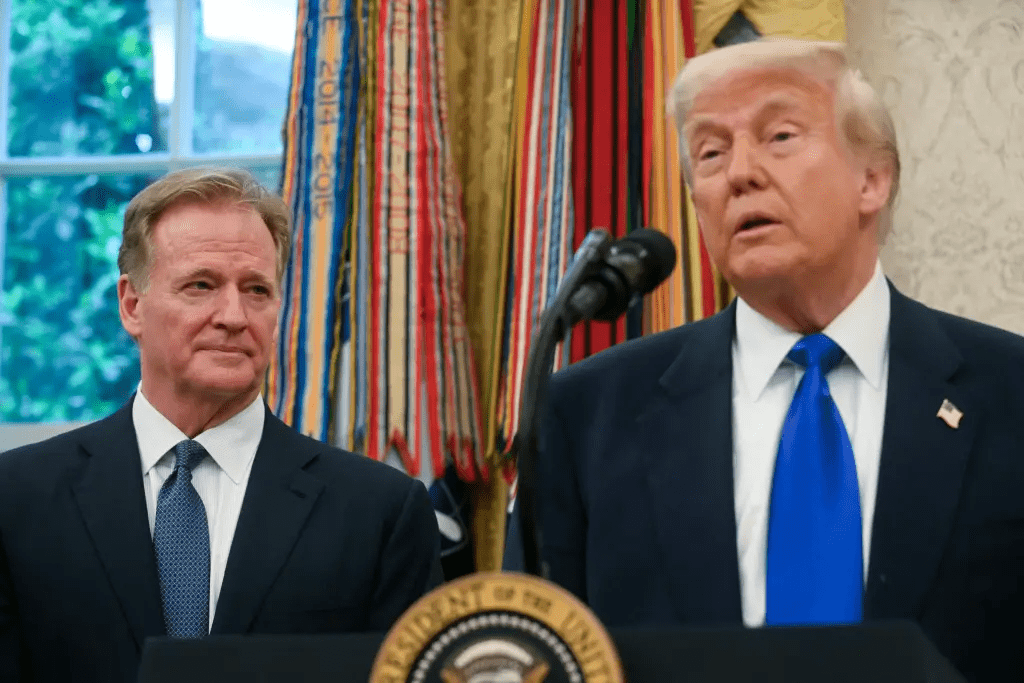
The backdrop is significant. The Commanders, who currently play in Landover, Maryland, are preparing to relocate back to the nation’s capital on the site of the storied Robert F. Kennedy Memorial Stadium (RFK) in the District. The new venue — a 65,000-seat domed stadium targeted for 2030 — is part of a sprawling mixed-use development that will reshape Southeast D.C.’s skyline and waterfront.
The financial plan is equally hefty: roughly $2.7 billion will come from the team and private partners, with around $1 billion in public investment or subsidy from the District of Columbia. The project received formal approval from the D.C. Council in September 2025 after years of negotiation and legislative wrangling.
And while stadium naming rights are typically sold to corporate sponsors — think banks, telecoms or airlines — this request is different. If the name were simply “Trump Stadium,” it would represent a rare case of a public‐private venue bearing the personal name of a sitting President. Sources say the land in question is federally owned, with the lease held by the District and the stadium to be operated by the Commanders. This means that even if the team is on board, local and federal agencies including the National Park Service must approve the naming decision.
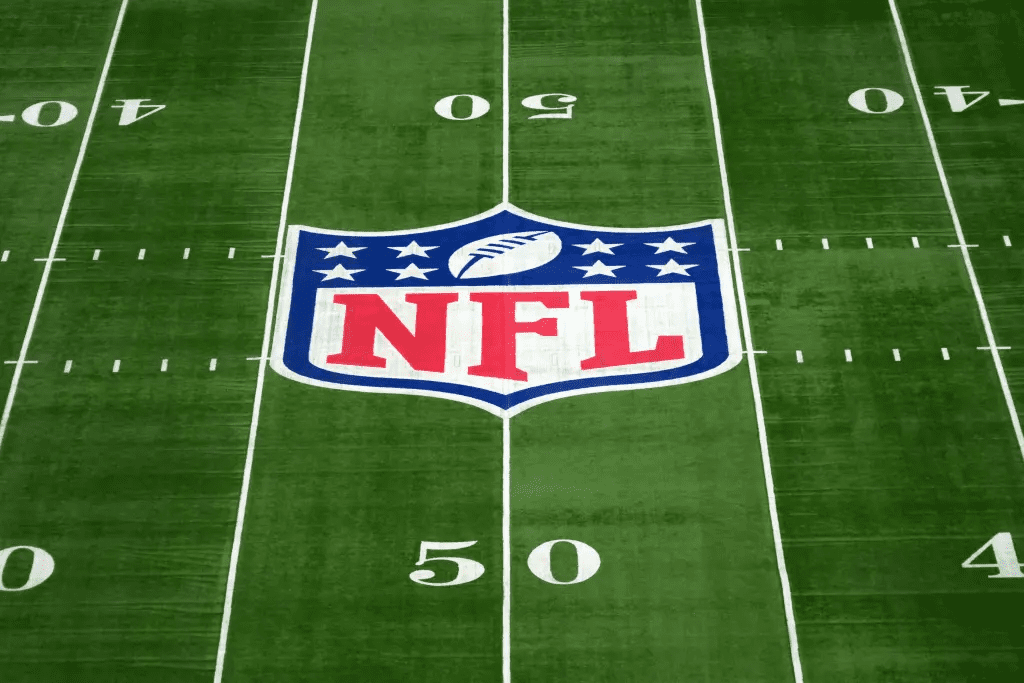
Why push for the name now? The timing is telling. President Trump has long built his brand around his name appearing on buildings, hotels and golf courses. In this case, the intersection of sports, legacy and political influence may offer a unique platform. As one source told ESPN, Trump “has cards to play” in getting the naming approved because his administration controls the land transfer and environmental approvals needed to move the stadium forward.
For team ownership and city officials, the implications are complex. On one hand, the stadium signals a return to Washington and the resuscitation of a franchise presence in the nation’s capital — a move with emotional and civic resonance. On the other hand, the push to name the stadium after a polarizing political figure opens new questions about neutrality, sponsorship strategy and the broader image of the franchise. The Commanders have remained publicly silent on the naming matter, even while informal discussions are believed to be occurring at upcoming games and home events.
For D.C., the project is hailed by supporters as a massive economic opportunity: job creation, tourism, new housing, retail development along the waterfront and revitalization of an area that has long waited for investment. Critics caution that public money is at risk, naming rights could be undervalued, and the legacy of the public asset must be protected. In this context, the question of whether the team allows the venue to carry “Trump” — or some variation — carries real weight.

The political dimension cannot be ignored. The project plays out amid an era where the boundaries between public office, private enterprise and branding are increasingly blurred. A stadium named for a sitting or recent President would raise questions about equity, corporate sponsorship norms and whether such naming constitutes an endorsement or legacy piece rather than a neutral naming partner. Some Republican allies claim the naming is a just reward for Trump’s federal support of the stadium deal. Others view it as a departure from traditional naming practice. The White House’s warm comment — describing the name as “beautiful” — adds fuel to critics who say the presidency should not intervene in stadium branding decisions.
From a sports perspective, the Commanders are at a transitional moment. The franchise has faced years of turmoil, ownership change from Dan Snyder to Josh Harris’s group, and challenges in on-field performance. A mega-stadium reset offers a new chapter. The possibility of the venue being dubbed the “Trump Stadium” carries both marketing advantages and risks: it might energize a segment of the fanbase that aligns with Trump’s brand, while alienating others who prefer sport to remain politically neutral. The team must weigh fan sentiment, corporate partnerships and long-term brand identity against the appeal of an unusually high-profile naming.
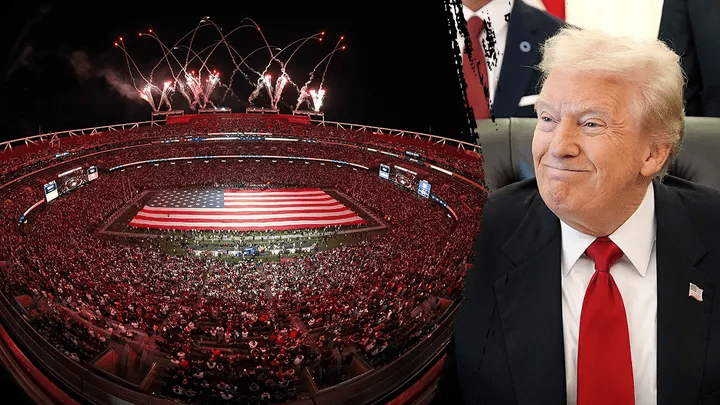
In the broader context of American sports business, the naming strategy is unusual but not unprecedented. Collegiate venues and municipal assets have earlier borne the names of political figures, but rarely in a scenario where the individual is still actively engaged in national politics and publicly requesting the honor. If the name is approved, it could set a precedent for future public-private sports venues, particularly in politically charged markets. Setting the precedent may reframe how stadium deals are structured, influencing ambiguity between naming rights as commercial assets versus legacy assets.
Inside the corridors of D.C., officials are conscious of the optics. The new campus surrounding the stadium will include mixed-use space, affordable housing, green space and transit improvements. Ensuring the public investment yields equitable returns is part of the narrative being used to justify the massive expenditure. If the name becomes “Trump Stadium,” the public messaging will need to account for inclusion and accessibility, lest the venue becomes a symbol of exclusion rather than civic pride. One source familiar with the negotiations told one outlet that while no formal naming agreement has been signed, “the idea is moving forward.”
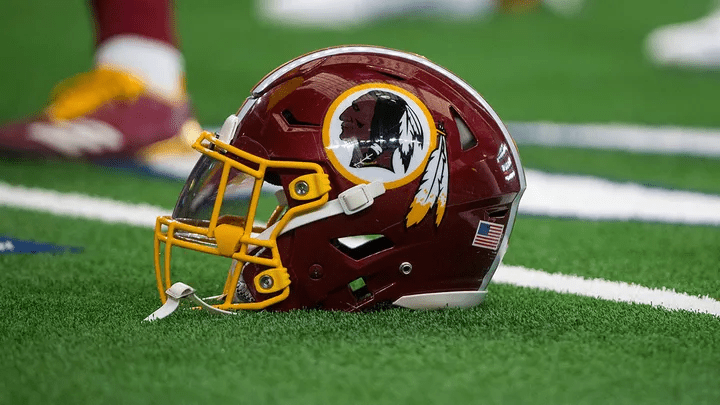
Fans, meanwhile, are left watching often from afar as the stadium plans advance and the naming debate unfolds. Some local supporters view the return to D.C. as a long-awaited homecoming, nostalgic for the RFK era when the team played in the heart of the capital. Others worry that the naming distraction distracts from the football. However it plays out, the project is defining the next decade of franchise identity.
For President Trump, the stadium naming pursuit may represent more than vanity. It offers a lasting monument to his influence in the nation’s capital — not just in politics but in sport, development and culture. In the ever-merging world of brand, legacy and politics, this move may be his boldest yet. Whether the name finally reads “Trump Stadium,” or a compromise emerges (e.g., a corporate sponsor plus his name), the story underscores how intertwined sports arenas have become with broader power dynamics.
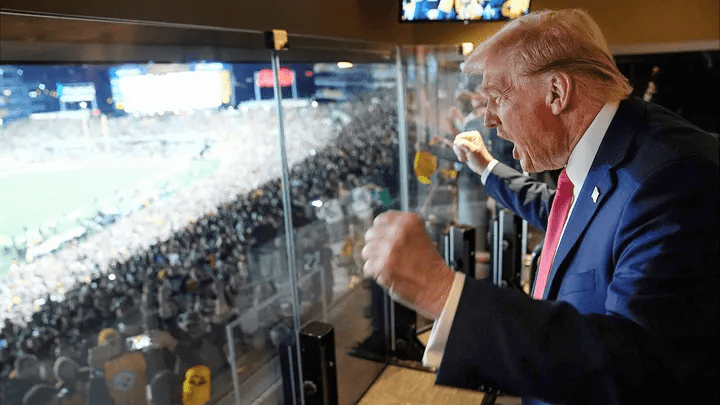
In the meantime, the clock continues to tick. Ground-breaking timelines, community agreements, land transfers and construction schedules are all moving forward. With the opening targeted for 2030, stakeholders from the team, the city and the federal government still must iron out naming rights, sponsorship deals and branding strategy. The question is not only whether the new D.C. stadium will carry Donald Trump’s name, but what that decision will signal about the future of sports, civic assets and presidential branding. All involved are aware: the stakes are enormous, and the name on the building may say more than any scoreboard ever could.
